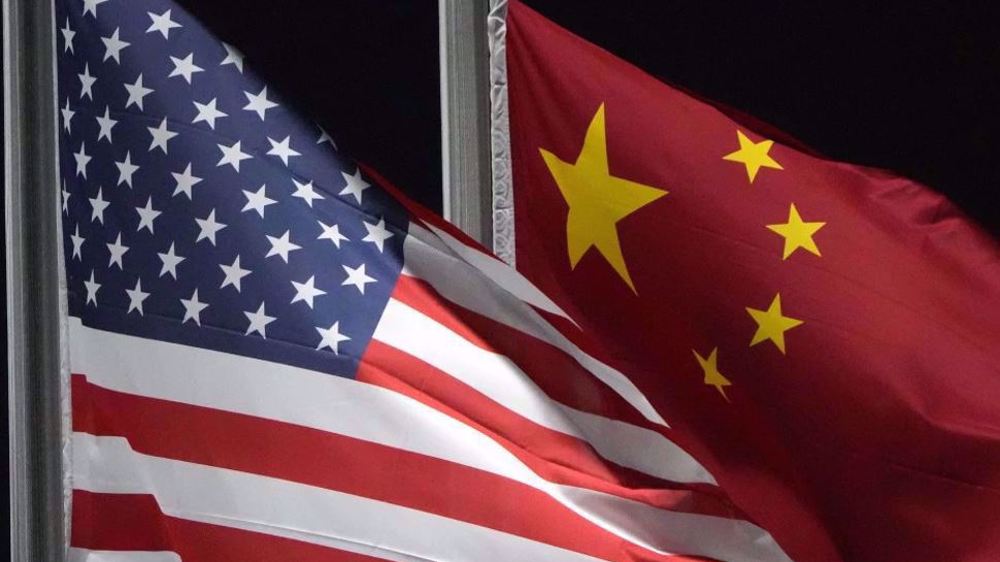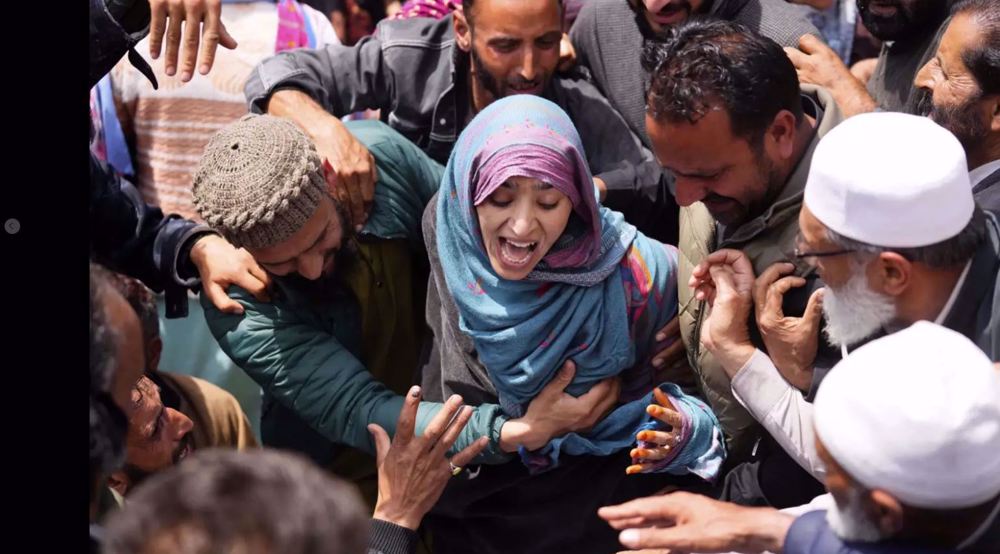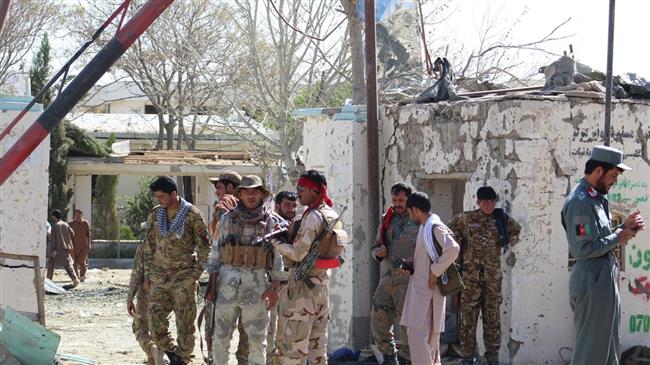US 'peace envoy' meets Taliban counterparts for first time since failed deal
US so-called peace envoy Zalmay Khalilzad has met with Afghanistan-based Taliban negotiators for the first time since the American president called off a seemingly imminent truce deal with the notorious militants in its bid to end its 18-year war on the terror-ravaged country.
Announcing the development on Saturday, an unnamed Taliban official cited in an AP report did not elaborate further on the Friday encounter in Pakistan’s capital of Islamabad between Khalilzad and the Taliban delegation led by Mullah Abdul Ghani Baradar, a co-founder of insurgent group that was ousted in 2001 by the US-led military occupation of Afghanistan, purportedly aimed at rooting out terrorism in the country.
The Taliban official spoke on condition of anonymity because he was not authorized to speak to the media, the report noted, adding that while Washington has insisted that there is no resumption of peace talks, the meeting is still significant since the US continues to seek an exit from the longest war in its history, leaving hundreds of thousands killed, injured and displaced across Afghanistan.
According to the report, Khalilzad has been in Islamabad for much of the past week meeting with senior government officials in what the US State Department referred to as follow-up meetings he held in New York during last month's UN General Assembly session, where he met with Pakistani Prime Minister Imran Khan, who has been calling for a resumption of peace talks.
This is while Taliban’s top negotiator Mullah Baradar arrived separately in the Pakistani capital for meetings with government officials aimed at discussing a wide range of political issues linked to the more than 1.5 million Afghans still living in Pakistan as refugees.
In the past year, Khalilzad held nine rounds of negotiations with the Taliban in the Persian Gulf State of Qatar, where the insurgent group maintains a political office.
In early September an agreement appeared imminent, but a new wave of violence and the death of a US soldier caused Trump to suddenly call off the talks, including the cancellation of an truce signing ceremony in Camp David, about which few had been aware.
During the Doha talks, Khalilzad and Baradar held one-on one talks and in recent weeks Taliban negotiators had travelled to China and Russia to drum up support for a return to talks.
Baradar was nabbed in Pakistan in 2010 in a joint Pakistani-CIA operation after he secretly opened peace talks with the then-Afghan President Hamid Karzai, attempting to sideline Pakistan and defy US strategy at the time, which did not support talks with the militant group.
Baradar was then released from jail in 2018 to facilitate peace following Khalilzad’s appointment as the US peace envoy as Washington sought a way to conclude its Afghan military engagement.
More than 14,000 US troops still remain in Afghanistan and Trump has repeatedly expressed his frustration with their continued deployment, complaining that they have taken on the duties of policing the nation.
US military hitting Taliban harder since ending peace talks: Esper
Meanwhile, US Defense Secretary Mark Esper announced on Friday that the US military has ramped up the number of air and ground attacks against Taliban insurgents at the direction of Trump.
“We did step up our attacks on the Taliban since the [peace] talks broke down," Esper said in a press briefing. “The president spoke about this publicly. We did pick up the pace considerably."

The US military chief further emphasized, “The president did want us to pick up the response to this. You had the heinous attacks that the Taliban and others conducted throughout Afghanistan … in Kabul and a couple of other places."
After calling off the peace talks, Trump suggested the Taliban were coming under surging military pressure and claimed in a speech marking the September 11, 2001 incidents that “the last four days, we have hit our enemy harder than they have ever been hit before, and that will continue."
Esper, however, refused to offer any figures to quantify the rising strikes and did not state whether the US troops in Afghanistan are going outside the wire more often now.
“I don't want to comment in terms of detail because, frankly, I don't have that level of detail, but we did pick up the pace of attacks, as the president has spoken about, with regard to both air and ground."

Trump, Zelensky hold 'productive' talks ahead of Pope's funeral in Rome

No talks on tariffs between China, US: Chinese Foreign Ministry

Pakistan carried out US ‘dirty work’ for 30 years: Defense minister
MSF: 70% of burn victims in Gaza are children, little chance of recovery
Trump, Zelensky hold 'productive' talks ahead of Pope's funeral in Rome
Explainer: What is the significance of Shahid Rajaee Port for Iran?
VIDEO | Muscat’s third round of indirect talks between Iran and US
Iran, US conclude third round of indirect talks in Oman
The case of Raffi Berg and BBC: Zionist infiltration of the mainstream media
No talks on tariffs between China, US: Chinese Foreign Ministry
Hamas: No partial truce, only comprehensive deal acceptable












 This makes it easy to access the Press TV website
This makes it easy to access the Press TV website